At an earlier time in human history, before the development of the large field of study we now think of as the natural sciences, there were no answers to mankind’s most fundamental questions about life, the Earth, the universe, and as humans, who or what we are. These large gaps in human knowledge caused people to turn to religion for answers. This expansive and empowered role for religion persisted for many centuries and has been at the very center of how human society developed over the years. But there were chinks in religion’s armor. First it was the theorizing of the astronomer Copernicus, whose observations led him to claim the Earth was not at the center of the universe, in dramatic contradiction to the religious promises that a God (or Gods) designed things with us at the center. Then it was Galileo and Isaac Newton, whose observations of “heavenly” bodies undeniably put us on a map inside a Solar System of planets held together by gravity, with a sun at its center. These findings were so enlightening, and the societal changes that resulted so significant, that this period in human history when we began shedding religious beliefs in favor of scientific ones is now called the Copernican Revolution. The “revolution” was one of thought that forever altered the role of religion, but still it left wide open many questions about humanity and our origins. For our most fundamental question, “who are we”, religion remained the authority.
We’re now in the Galapagos Islands, 600 miles off the Ecuadorian mainland coast. The Galapagos are famous for their exotic and diverse wildlife, and after three days of exploring, we think it deserves its reputation. It’s impossible to overstate the historical significance of these remote islands. It was here in 1837 where the naturalist Charles Darwin made discoveries that answered many of our remaining questions about life (at least in the physical world) and where humans come from. That, like all other life, we evolved from single-cell organic muck was an uncomfortable but profound truth that again altered the intellectual boundaries of the religious sphere and its institutional power structures, with a result that’s changed the direction of all human history since then.
The entire group of Galapagos Islands is a protected national park with a diverse population of animal wildlife that in many ways has no equal anywhere on the planet. Unlike most wildlife reserves, it is the remoteness of the islands, instead of overly burdensome rules and restrictions, that’s preserved the Galapagos wildlife from both natural predators and from the effects of human meddling and trampling. We’ve been mostly free to interact with the animals, and they seem totally disinterested and un-bothered by our presence. We’ve been swimming with sea lions and turtles, sharing beaches with iguanas and crowds of crabs, and feeding giant tortoises in the highland area. The experience here is unlike any we’ve had so far, and its impossible to leave without adopting a new interest and respect for nature and its diverse creatures.
All of our time so far has been spent on Santa Cruz island, which is the main touristic hub in the Galapagos. We haven’t yet found the finches and famous Blue Footed Boobie birds that ultimately led to Darwin’s history-changing On the Origin of Species, so we’re planning our excursions for the next couple days to the more remote islands where the boobies are easier to find. In the mean time we’re pondering a theory of our own about how we might get back to the Galapagos again someday. It’s clear already that our one week in the Galapagos won’t be nearly enough.
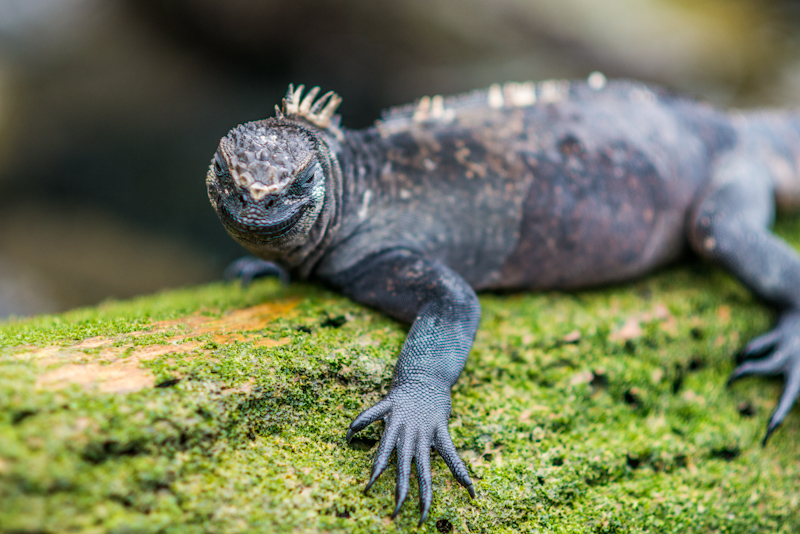

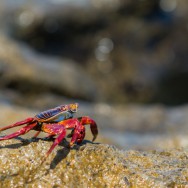
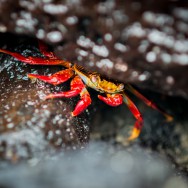
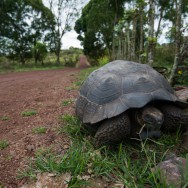
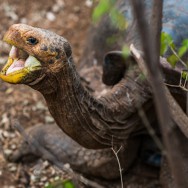
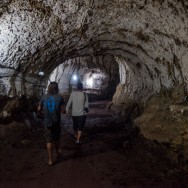
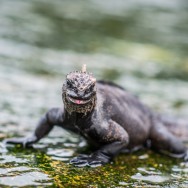
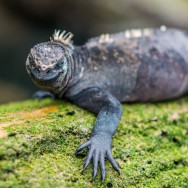
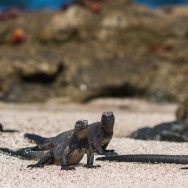
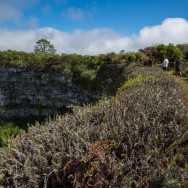
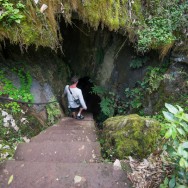
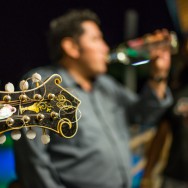
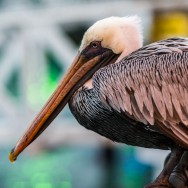
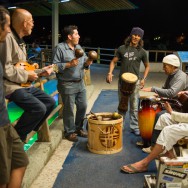
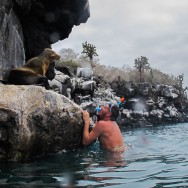
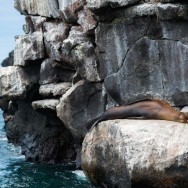
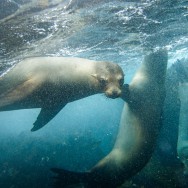
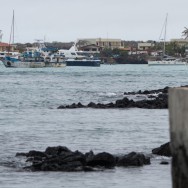
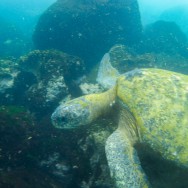
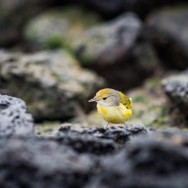
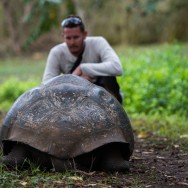
WOWZZLE RAZZLE DAZZLE AMAZING AWESOME!!!!
Hi Guys
Interesting blog from the Glpgs Islands thank you. I feel sure that you will get back there if you set your minds to doing so.
Meantime it is on to the big crossing. Where is your next landfall? It seems now that the Tamarisk problems are all resolved and that is wonderful. Here is wishing you both a big Bon Voyage as you face into the Pacific. I feel sure that it will be a cakewalk for you guys. We are thinking of you and want you both to enjoy every moment of the trip and to be safe as you travel.
Cheers and every best wish to you both from us both.
Aidan and Robin
Intrepid Salties are more landlubbers this week, creating unforgettable memories of interactions with the many unique species, and the gorgeous photos speak volumes. Hope you’ll see the flightless cormorants (we saw them on Fernandina); and Bartolome has spectacular scenery where parts of “Master and Commander” were filmed. Be safe and soak it all up.. we love you as you do so. xxxx